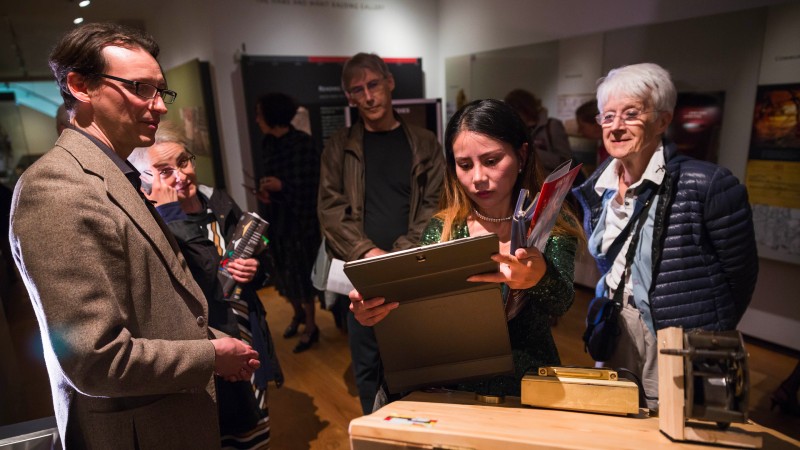
This is the second instalment in an occasional series to feature research that my colleagues are engaged with at Oxford Brookes University. In the last episode, Niall Munro spoke with Dr Dinah Roe about her work on Christina Rossetti, Victorian poetry, and the Pre-Raphaelites - and you can still find that episode here on our website or via your usual podcast provider.
There is a lot of very exciting research into poetry of all kinds and periods being carried out at Brookes, and I encourage you to take a look at our research pages and see what we’re all exploring right now. Colleagues don’t just give papers about their research at academic conferences but also give public talks and contribute to TV and radio programmes. If you’re a Twitter user, you can find some of us there and follow our English Twitter account: @BrookesEnglish
For this episode I’m delighted to introduce an interview with Dr Eric White, who is a Reader in American Literature at Oxford Brookes University. Eric specializes in avant-garde literature and is the author of two books: Reading Machines in the Modernist Transatlantic: Avant-Gardes, Technology and the Everyday (2020) and Transatlantic Avant-Gardes: Little Magazines and Localist Modernism (2013). He has also prepared critical editions of texts, including Readies for Bob Brown’s Machine (2020) and The Early Career of William Carlos Williams (2013).
Eric is the principal investigator of the Avant-Gardes and Speculative Technology (AGAST) Project, a digital humanities collaboration that reimagines modernists’ inventions using XR (Extended Reality, a term that includes virtual reality, mixed reality, and augmented reality). Together with Dr Georgina Colby, he co-edits two Edinburgh University Press Series on avant-garde writing.
In this discussion we begin by talking about Eric’s early research that focused on the little magazines and magazine culture in North America in the modernist period and eventually became the focus of his first book. We think about some of the ideas that underpin that book, such as localism and localist modernism, and zoom in to look at two highly influential little modernist magazines, Others and Fire!!
After this, we move on to consider some of the research that featured in Eric’s second book, Reading Machines in the Modernist Transatlantic, and Eric reflects on the relationship between avant-garde art practice and technology, as he draws attention to the work of modernist writers such as Mina Loy. Eric goes on to outline one of the key arguments in his book - that writers like Loy employed techno-bathetic strategies to propose new ways of thinking about technology, strategies that could often be highly emancipatory.
In addition to Loy, Reading Machines in the Modernist Transatlantic includes a number of other intriguing characters, and none is perhaps more intriguing than Bob Brown. Eric explains how Brown, together with his wife Rose sought to bring avant-garde ideas into the mainstream, through projects such as his Reading Machine, a device that was supposed to change the way we read and related to texts. If the cinema had been transformed by the ‘talkies’, Brown reasoned, so too the book could be transformed by his ‘readies’.
We close the podcast by thinking about how African American writers like Gwendolyn Bennett, Langston Hughes, and Amiri Baraka used a particular form of technology in their work - the railroad - and how this kind of infrastructure gives voice to African American concerns and communities.
Unlike other podcasts, this one features some bonus material! In an extra mini-episode, which you can listen to via the link on this page, Eric gives us some insight into the Avant-Gardes and Speculative Technologies (or AGAST) project, which draws on his research to consider what kinds of powerful applications these modernist technologies might have today.

